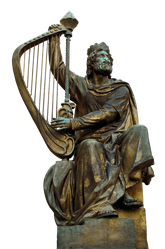For many years the Jews were a diaspora among the nations, and while some lived in Israel, not many did. But during the nineteenth century nationalism began to arise in Europe, and with it came the belief that every nation has its rightful homeland, and for the Jews this was Israel. Hence we get the political movement of Zionism, which went for restitution of the land from which the Jews had beeen expelled by the Romans. The trouble is that there were Palestinians in the land already. Who were they? A mixture of Muslims and Christians, they descend from a mixture of Samaritan and Jewish converts to Christianity, Arabs and others, including European crusaders. They have been there for centuries.
In 1917 the British foreign secretary Lord Balfour agreed in a letter to one of the Rothschild family that the Jews were entitled to a homeland, a statement known as the Balfour declaration, and the Rothschilds ran with this declaration. The horrific treatment of Jews in the Holocaust gave energy to the drive for a Jewish homeland, and by 1948, after some Jewish settlers in Israel had launched a militant campaign of violence to force their will, the state of Israel was born.
But Jerualem was split between the state of Israel, which held the West, and the Jordanians holding the East. However, during the Six Day war of 1967 the victorious Israelis took control of East Jerusalem and also the Jordanian territory west of the river Jordan, known as the West Bank, which was Palestinian territory and which the conquered Palestinians saw as the nucleus of their new state. The Palestinians want East Jerusalem as their own capital, but in 1980 Israel annexed East Jerusalem, though the United Nations opposed the annnexation, as it always opposes territorial land grabs. In 1993 Israeli- Palestinian negotiations in Oslo decided that a decision on the final status of Jerusalem was to be deferred.
The United States decided that despite its support of Israel the wisest option was to oppose the transfer of Israel's capital to Jersualem, so successive presidents kept the US embassy in Tel Aviv, so as to avoid annoying the Arabs in what is a political hotspot. Then along comes Donald Trump who authorizes the moving of the US embassy, with a de facto acceptance of the annexation. The rest of the world, even including the clueless crowd who run Britain, think this is a bad idea, because if there is any rule for dealing with the Middle East it is "Don't make matters worse;" and this move is likely to provoke animosity without solving any problems. Let's be clear, I am not an enemy of President Trump, for I thank him for his support of religious liberty, but I am concerned that he has erred in this decision.









 TheThousand Year Gardenon 11/26/2025
TheThousand Year Gardenon 11/26/2025
 Women of the Gospelson 10/11/2025
Women of the Gospelson 10/11/2025
 Religious Gardenson 08/25/2025
Religious Gardenson 08/25/2025
 Doctor of the Church: John Henry Newmanon 08/03/2025
Doctor of the Church: John Henry Newmanon 08/03/2025




Comments
The public pensions are very reliable in civil and crown services. Benefits are the same.
Thank you for your comment below, in answer to my previous observation and question.
That's so convenient and impressive that civil and crown services involve identical conditions and pay.
So that means that if your and your wife's youngest son moves back and forth between civil and crown services such movement matters not at all in terms of the ultimate amount and availability of his pension, correct?
Such movement perhaps offers Unitedstatesians problems likelier in the private sector than the public.
Might the non-governmental agencies that crown service musters mean private- or public-sector pensions?
He is doing well. Thanks. The pay and conditions are identical
Thank you for your comment below, in answer to my previous observation and question.
That's quite interesting about concomitant distinctions between, but movement back and forth among, civil and crown service.
Might they have the same benefits and pension plans?
(Congratulations on your youngest son's crown service!)
No. Civil servants have good holiday allowance. My youngest son is a crown servant, slightly different from a civil servant, and his holiday allowance is quite good.
The difference is that civil servants work for the government whereas crown servants work for non government agencies. Conditions of work are the same and employees move freely from one to another.
It appears to me that embassy work demands much personally and professionally of its staff.
Does the east-pond government pay for its embassy workers to spend extended weekends and national or religious holidays back in the British Isles?
You are quite right about networking opportunities. All diplomatic activity is paid for by the government.
Your comment dated 12/08/2017 below provisionally concludes that "at the moment the ambassadors will have to make journeys to Jerusalem to speak with the Israeli government."
Do the embassies that moved to Jerusalem still maintain lodgings and offices in Tel Aviv?
It seems to me that embassy staff in Tel Aviv will be left out of some networking, socializing and working in Jerusalem and vice versa. Wouldn't that encourage behaving cliquishly and drawing social lines?
Who would pay for all this extra networking-, socializing-, working-related travel?
As I pointed out, Luke's Gospel presents Jerusalem as the place at the centre of salvation history. Moreover, the prophets spoke of God's ruling from his holy mountain and all nations coming to worship there. It is therefore not just any old place and should be treated as special.
I am so glad you published this page. I suspected that you might because I know such matters are important and significant to you, as they are to me as well. Like Mary, the mother of Jesus, I often hide such things in my heart to ponder and pray about it.
I understand the situation in Jerusalem and can sum it up in three words. “God will decide.” All the ways of the nations are in the hands of God. But with respect to Jerusalem? It is so much more than the capital of Israel. It's the center of the world.